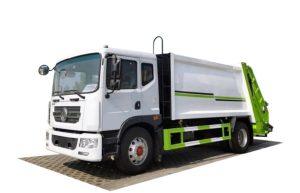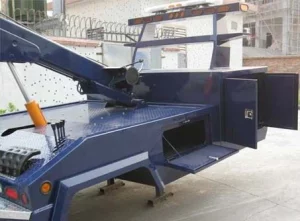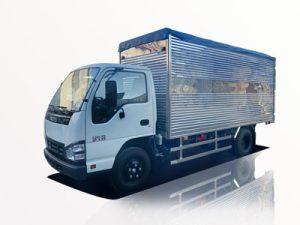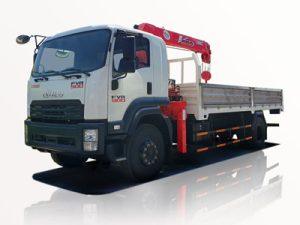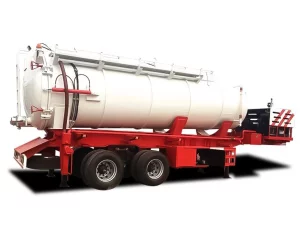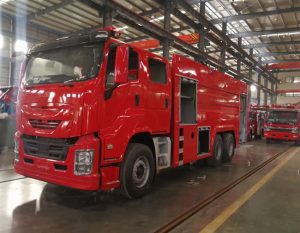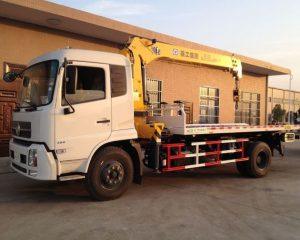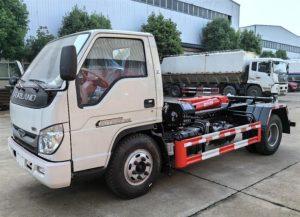Monday to Saturday - 8:00 -17:30
40 Foot Reefer Trailer for Sale: A Comprehensive Guide
Introduction
When it comes to transporting perishable goods, a 40-foot reefer trailer is a game-changer. With advancements in refrigeration technology, these trailers offer both flexibility and efficiency for businesses that demand reliable temperature control. Whether you’re a distributor, retailer, or caterer, understanding your options in getting a 40-foot reefer trailer for sale can greatly enhance your operations. In this article, we explore the facets of acquiring, using, and maintaining a 40-foot reefer trailer, so you can make informed decisions for your business.
What Is a Reefer Trailer?
A reefer trailer, short for refrigerated trailer, is specifically designed to transport temperature-sensitive goods. They are commonly used in the food industry, but also serve various sectors including pharmaceuticals and chemicals. The onboard refrigeration unit maintains the desired temperature, ensuring products arrive fresh and safe.
Key Features of 40 Foot Reefer Trailers
- Length: 40 feet, suitable for large shipments.
- Insulated walls: Helps maintain internal temperatures.
- Refrigeration unit: Capable of cooling or heating as needed.
- Durability: Built to handle heavy loads and rough conditions.
Benefits of Owning a 40 Foot Reefer Trailer
Investing in a 40-foot reefer trailer comes with numerous advantages, particularly for businesses that rely on safe transportation of goods.
1. Enhanced Storage Capacity
A 40-foot reefer trailer provides substantial storage space compared to smaller models, making it ideal for larger shipments.
2. Consistent Temperature Control
This type of trailer ensures that your products are kept at consistent temperatures, reducing spoilage and maintaining quality.
3. Versatility
Reefer trailers can transport a variety of goods, from frozen food to pharmaceuticals, making them a versatile asset for any business.
4. Cost-Effectiveness
While the initial investment may be high, owning a 40-foot reefer trailer can save money in the long run by reducing rental fees and minimizing product loss.
Types of 40 Foot Reefer Trailers Available
Understanding the different types of 40-foot reefer trailers can help you choose the right one for your needs.
1. Single Temperature Reefer Trailers
These trailers are designed to maintain a single temperature zone, suitable for transporting one type of product.
2. Multi-Temperature Reefer Trailers
Multi-temperature models offer several compartments that enable the transport of multiple products requiring different temperature settings.
3. All-Weather Reefer Trailers
These trailers come with advanced insulation systems and are designed to withstand extreme weather conditions.
What to Look for When Buying a 40 Foot Reefer Trailer
Here are some factors to consider when searching for a 40-foot reefer trailer for sale:
1. Condition: New vs. Used
Determine whether you want a new or used trailer. New trailers come with warranties, while used ones may be more affordable but require careful inspection.
2. Refrigeration Unit Brand
The brand and model of the refrigeration unit can significantly affect reliability and service availability. Research reputable brands.
3. Insulation Quality
High-quality insulation is necessary for maintaining temperature. Look for trailers with good R-value ratings.
4. Maintenance History
If you’re considering a used trailer, request maintenance records to understand its care and any potential issues.
5. Compliance with Regulations
Make sure the reefer trailer meets all local health and safety regulations for transporting perishables.
Where to Buy a 40 Foot Reefer Trailer
Finding the right place to buy a reefer trailer can save you both time and money.
1. Dealerships
Purchase from authorized dealerships for reliable selections and warranty options.
2. Online Marketplaces
Websites like Craigslist, eBay, and specialized freight equipment sites list new and used reefer trailers for sale.
3. Auctions
Attend equipment auctions to find potentially great deals on reefer trailers.
4. Classified Ads
Check local newspapers and online classified ads for listings of reefer trailers for sale.
Financing Options for Your 40 Foot Reefer Trailer
Investigating financing options can help you acquire a 40-foot reefer trailer without straining your finances.
1. Commercial Loans
Many banks offer commercial loans designed for purchasing heavy equipment.
2. Equipment Financing
Specific lenders offer loans based on the value of the equipment being purchased, which can be a practical option.
3. Leasing
Consider leasing options if you’re unable to make a significant upfront payment. Leasing allows you to use the trailer while paying smaller monthly installments.
Essential Maintenance Tips for Reefer Trailers
To ensure longevity and optimal performance, regular maintenance on your reefer trailer is crucial.
1. Regular Inspections
Conduct thorough pre-trip and post-trip inspections of the trailer and refrigeration unit.
2. Clean the Unit
Keep the refrigeration unit clean and free from debris to enhance efficiency.
3. Temperature Monitoring
Regularly check and log temperature data to ensure the unit is functioning properly.
4. Maintenance Schedule
Follow the manufacturer’s recommended maintenance schedule for servicing and repairs.
Maximizing Your Reefer Trailer’s Efficiency
Efficiency is key to minimizing operational costs. Here are some tips to maximize your 40-foot reefer trailer’s performance:
1. Optimal Loading
Avoid overloading the trailer and ensure proper air circulation is maintained around the goods inside.
2. Pre-Cool Before Loading
Pre-cool your reefer trailer before loading to minimize the temperature fluctuations once the products are inside.
3. Utilize Technology
Consider investing in GPS tracking and temperature monitoring systems for real-time updates on your cargo conditions.
FAQ
1. How much does a 40-foot reefer trailer typically cost?
The price of a 40-foot reefer trailer varies widely based on factors such as condition, brand, and features, typically ranging from $30,000 to $70,000.
2. What type of maintenance is required for a reefer trailer?
Regular maintenance should include inspections, cleaning, temperature monitoring, and servicing the refrigeration unit according to the manufacturer’s guidelines.
3. Can I use a reefer trailer for products that do not require refrigeration?
While it is possible to transport non-perishable goods in a reefer trailer, it is more cost-effective to use a standard dry freight trailer if refrigeration is unnecessary.
4. What are some common issues with used reefer trailers?
Common issues can include malfunctioning refrigeration units, worn tires, structural damages, and outdated insulation. Always request a thorough inspection report when considering a used trailer.
5. How do I choose the right size reefer trailer?
Consider your typical shipment volume, types of products, and delivery routes to determine if a 40-foot reefer trailer is appropriate for your needs. Advanced planning can result in better efficiency.
6. Are there any regulations specific to reefer trailers?
Yes, regulations vary by state and country, especially concerning food safety. Ensure your trailer meets health regulations before transporting perishable goods.


